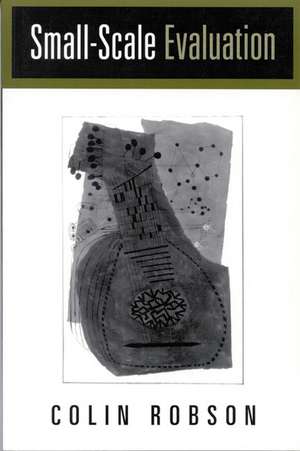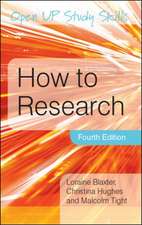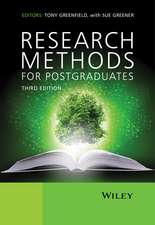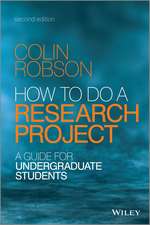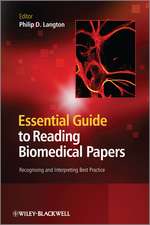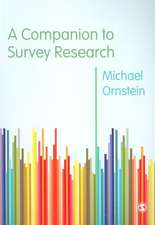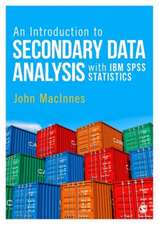Small-Scale Evaluation: Principles and Practice
Autor Colin Robsonen Limba Engleză Paperback – 19 dec 1999
| Toate formatele și edițiile | Preț | Express |
|---|---|---|
| Paperback (2) | 410.17 lei 38-44 zile | |
| SAGE Publications – 19 dec 1999 | 410.17 lei 38-44 zile | |
| SAGE Publications – 11 oct 2017 | 435.28 lei 6-8 săpt. | |
| Hardback (1) | 988.69 lei 6-8 săpt. | |
| SAGE Publications – 11 oct 2017 | 988.69 lei 6-8 săpt. |
Preț: 410.17 lei
Nou
78.48€ • 82.17$ • 64.94£
Carte tipărită la comandă
Livrare economică 01-07 aprilie
Specificații
ISBN-10: 0761955100
Pagini: 168
Dimensiuni: 156 x 234 x 11 mm
Ediția:1
Editura: SAGE Publications
Colecția Sage Publications Ltd
Locul publicării:London, United Kingdom
Cuprins
Evaluation
The What and the Why
The Advantages of Collaboration
Ethical and Political Considerations
Designs for Different Purposes
Getting Answers to Evaluation Questions
Some Practicalities
Communicating the Findings
Descriere
Recenzii
This is a marvelous book. It communicates clearly and directly to the reader, making the subject accessible and usable rather than abstruse or forbidding. Robson excels in thinking with the reader and getting the reader to think along with him, so that reading his work seems like collaborating with a helpful mentor. Supported by many helpful diagrams and charts, he uses real-world situations, contexts, examples, and research literature to give the reader an understanding of how she might go about conducting actual research using this book as a guide. He discusses the challenges a researcher can face in conducting evaluations, such as getting those being studied to collaborate in the research project, and the strengths and weaknesses, benefits and pitfalls of so doing. And it is of great value that his focus is specifically on small-scale evaluation, because that is the type of evaluation in which a student or budding researcher is most likely to be involved. Robson is a great demystifier and guide--other research texts would benefit greatly from adopting Robson's style of thinking, writing, and guiding.
Notă biografică
Colin Robson is an Emeritus Professor in the School of Human & Health Sciences at the University of Huddersfield. He directed a series of local, regional and national research and evaluation projects, mainly in aspects of special educational needs, at Huddersfield in association with the Hester Adrian Research Centre, University of Manchester. He subsequently was a supervisor for over twenty research students, mainly at Doctoral level, covering a wide range of disciplines - education, social work, management, music, and aspects of health, including nursing, midwifery and osteopathy, while developing and leading a postgraduate programe in Social Research and Evaluation. More recently he was, for over a decade, chief Consultant at the Centre for Educational Research and Innovation at OECD in Paris, for projects evaluating and comparing national systems for the education of students with disabilities, learning and behavioural difficulties and social disadvantages, and a follow-up project for Eurostat, the statistical arm of the European Union.
